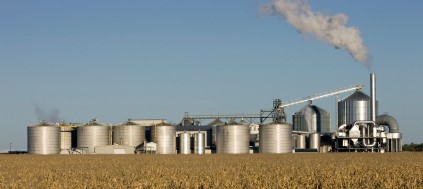
Over the past few years concerns about sustainability and the need for green engineering have caused significant growth in the biorefineries sector of the chemical industry. With its growth has come a greater visibility, underscoring both its benefits and its problems. One of greater concern--and certainly a concern not exclusive to biorefineries--is of the safety of the processes involved.

Because of the nature of these processes as well as the chemicals involved, accidents can greatly endanger personnel. This is reason enough to constantly have safety at the top of our minds. Slips, burns, fires and explosions are some of the many things that can happen when working with chemicals. Efforts to improve process safety in general are an everlasting labor in the chemical industry, for which the Center for Chemical Process Safety (CCPS) was formed to assist.
Formed in 1985 by the American Institute of Chemical Engineers, CCPS's goal has been to improve guidelines and practices to prevent chemical accidents. With members across the breadth of chemical manufacturing businesses, CCPS has published more than 100 guidelines aimed at identifying hazards and best practices for various chemical processes.
In an interview with Domestic Fuel, Scott Berger of CCPS spoke on chemical safety, noting that every material has a hazard. He states:
"If you don't respect that hazard, don't identify that hazard, don't manage the hazard properly, then you can have a problem."
Read Joanna Schroeder's full Domestic Fuel article or listen to Scott's interview below:

